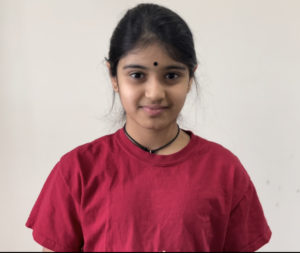- View All
- Topics
- Search
Topics
- 25th Anniversary
- Alumni
- Book Recommendations
- Child Tax Credit
- Coding
- College Admissions
- College Counseling
- Community
- Cultural Learning
- Curriculum
- Distance Learning
- Earth Day
- Engineering
- Fundraising
- Giving
- High School
- International Women's Day
- Mandarin Bilingual Preschool
- Mandarin Language Programs
- Mindful Parenting
- Mindfulness
- National Women's History Month
- Parenting
- Parenting Support
- Poetry
- Potty Training
- Preparing for College
- Preparing for Preschool
- Reading
- STEAM
- STEM
- Student Awards
- Student Spotlight
- Teacher
- Teacher Awards
Blog Archive
-
2024 (5)
- May (1)
-
March (3)
- Stratford Preparatory Blackford Middle and High School Students Recognized at Multiple Competitions and Events in March
- Stratford Fremont and Pleasanton Middle School Students Bring Home 46 Science Fair Awards at the Alameda Science and Engineering Fair!
- Stratford Mandarin Language Students Win Multiple National Chinese Culture Competitions!
- January (1)
-
2023 (5)
- September (1)
- June (1)
- April (1)
- February (2)
-
2022 (11)
- November (1)
- August (1)
- July (1)
- June (1)
- May (1)
- March (2)
- February (3)
- January (1)
-
2021 (23)
- December (2)
- November (1)
- October (2)
- September (1)
- August (2)
- July (2)
- June (4)
- May (1)
- April (3)
-
March (4)
- What Families Need to Know About Child Care Benefits in the “American Rescue Plan Act”
- Inside Out: Fostering Emotional Intelligence (EI) in your Child
- Celebrating Women’s Contributions to History One Book at a Time
- Stratford School Congratulates Our 2021 Future City Engineering Competition Participants and Winners!
- February (1)
-
2020 (9)
- December (1)
- September (1)
- August (1)
- May (1)
- April (3)
- March (2)


Saluting our Creative Communication Poetry Award Winners!
We are extremely proud to announce that two of our Stratford student poets, Aakanksha Sahoo and Harika Appalla, have been recognized with poetry awards for their poems at the Creative Communication Poetry Contest, and their works will be published in this year’s annual poetry anthology.
Poem: “Could Be”
Link to poem
Click here to access a video of Aakanksha reading two of her poems
Poem: “A Significant Moment in American History”
Link to Poem
Click here to access a video of Harika reading her award-winning poem
About our Poetry Winners:
Aakanksha Sahoo started her poetry writing journey in 2nd grade when she was tasked with writing a paragraph about a tree and how it changed with the seasons. Her resulting poem “Seasons” was read aloud in Ms. Murison’s class and with her teacher’s encouragement it was later published in ” A Celebration of Poets Fall 2020 Anthology.” Distance learning inspired her to continue rhyming and writing poems and she followed up with a poem titled “Ornament” which was also published in “A Celebration of Poets” in Spring 2021.
paragraph about a tree and how it changed with the seasons. Her resulting poem “Seasons” was read aloud in Ms. Murison’s class and with her teacher’s encouragement it was later published in ” A Celebration of Poets Fall 2020 Anthology.” Distance learning inspired her to continue rhyming and writing poems and she followed up with a poem titled “Ornament” which was also published in “A Celebration of Poets” in Spring 2021.
Publishing her poems, and receiving recognition from her teachers and peers, have inspired and encouraged Aakanksha to write more poetry. Two of her poems, “Could Be” and “Nature,” were featured in the Top Ten list in the U.S. Additionally, she has been mentioned in the honor roll of Stone Soup Magazine’s February 2022 edition for her submission of 3 poems titled “Confusion”, “Friendship” and “Stare” which she submitted in Fall 2021.
Aakanksha’s favorite writers are Shel Silverstein, Roald Dahl, Enid Blyton, and Pene Du Bois, to name a few.
Aakanksha’s poems can be read and enjoyed online by logging into http://www.poeticpower.com and selecting Type as Poetry, Grade as K-3, and Contest as Summer 2021 or Fall 2021
Harika Appalla wrote her first poem in 3rd grade after her teacher explained the concept of poetic elements to her class. Harika’s initial poem, titled “Rosie and Betsy,” was inspired by the well-loved Ramona Quimby book series, written by Beverly Cleary. Thirteen poems later, Harika has come to realize that she loves to write about nature and its beauty in her work, as in her recent poem “The Sun of The Night.” Harika describes her process as “scribbling words across the paper to form poetry.” She finds the act of writing poems brings her a feeling of peace.
elements to her class. Harika’s initial poem, titled “Rosie and Betsy,” was inspired by the well-loved Ramona Quimby book series, written by Beverly Cleary. Thirteen poems later, Harika has come to realize that she loves to write about nature and its beauty in her work, as in her recent poem “The Sun of The Night.” Harika describes her process as “scribbling words across the paper to form poetry.” She finds the act of writing poems brings her a feeling of peace.
Her recent award-winning poem “A Significant Moment in American History” is her very first poem to be published and the Creative Communication Poetry Contest is the first poetry contest that she has participated in.
In addition to writing, Harika enjoys reading the work of many poets and declares her favorite poet to be Emily Dickinson. She looks forward to continuing her poetry writing and readings in the future.
Both of our award-winning poets were inspired to write their poetry in their classrooms. How does Stratford incorporate poetry into the curriculum in such a meaningful way?
Stratford’s Poetry Curriculum Inspires & Enhances Student’s Reading and Public Speaking Skills
Stratford’s literature curriculum includes a robust and ongoing study of poetry. Every month, students study at least one poem to enhance close reading fundamentals. In addition, each grade level’s study of poetry includes a poet study (in which three poems from a specific poet are examined). In their study of a poem, teachers lead a class discussion on the literary elements, while students gain a clear understanding of the poet’s purpose and the variety of meanings that a single poem can possess.
Students’ study of poetry is intentionally linked to speaking and listening skills. Building strong speaking and listening skills through poetry supports students in building strong content knowledge, responding to varying demands of audience, task, purpose, and discipline, strengthens comprehension, provides opportunities for critique, values evidence within the written work, and provides windows into other perspectives and cultures. For each poem selection, the teacher begins by reading the poem aloud to the class—modeling composure, projection, enunciation, expression, pacing, and eye contact. The students then have the opportunity to read the poem aloud in class to find their unique interpretation of the poem. Expansion of their study may include group discussions on the relevance of the poem to them, the creation of a piece of art related to the poem, or the composition of their poem inspired by the poem they are currently studying.
Composing poetry is also a part of our elementary classroom writing instruction. Starting in Kindergarten, students explore different forms of poetry (from shape poems and haikus to sonnets) and are encouraged to work through their own creative process to compose original poems, discovering their distinctive voice and inner poet.
Incorporating poetry into our literature curriculum allows students to connect with their creative voice, experiment with using language in a non-traditional way, delve into interpretation, and refine their communication and public speaking skills. The connections that are formed through poetry are instrumental in supporting and improving the essentials of reading, writing, listening, speaking, and thinking. Moreover, poetry enhances the learning experience by bringing it to life in a much more vibrant and engaging way which makes it an invaluable tool for both students and teachers.
To learn more about our Stratford School programs, visit our website at www.stratfordschools.com. To learn more about the Creative Communication Poetry Contest, visit https://www.poeticpower.com/enter-poetry-contest.